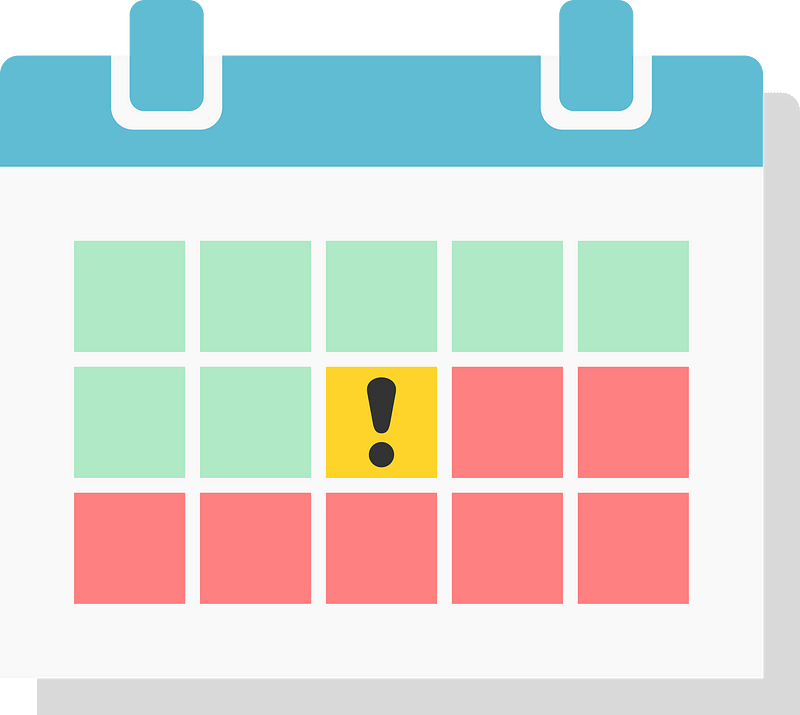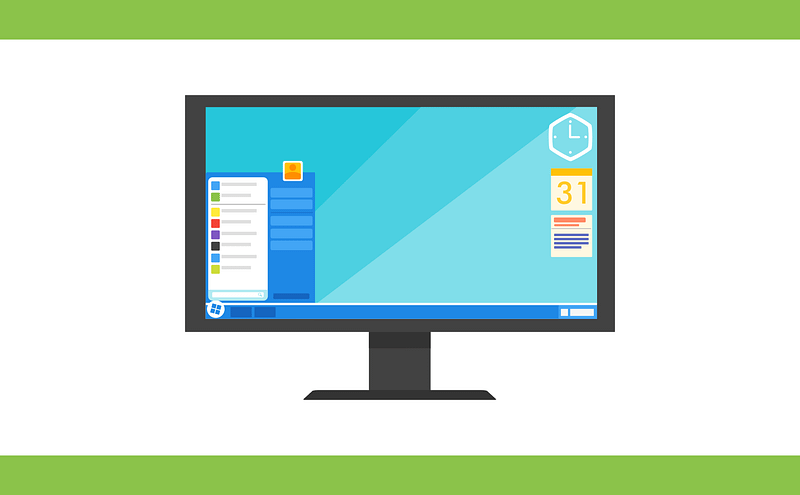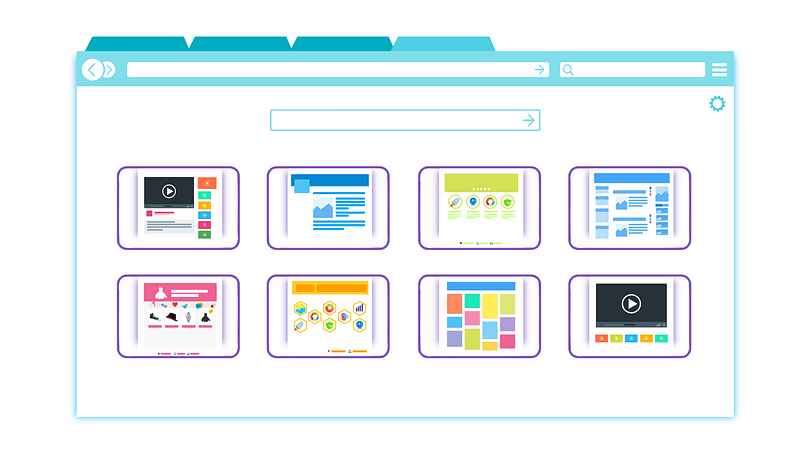What the Fuck is Wrong With You, Mike?
Living with ADHD for 50 years has been a wild ride.

Living with ADHD for 50 years has been wild.
Hi! I’m Mike. I recently turned 50 years old, I’ve been an IT professional for about three decades now, I dropped out of school at age 15 (and again at 16, 17 and 32), and have lived in pretty much every housing situation on the spectrum from homeowner to homeless. While it’s been something that was obvious to me for for a very long time, it was only a month ago I was officially diagnosed with ADHD by an actual psychiatrist.
Now that my diagnosis has been validated and impostor syndrome is a thing of the past, I am finally going to start talking about how it’s been living with ADHD. I have been holding back on this for many, many years and I think I have a lot to say.
Let’s start by looking at web browser user interface design in the 21st century.
Web Browser Interfaces
Tabbed interfaces for web browsers first started going mainstream around 2003, as I recall. I’m not going to look it up, because it’s not important and I can actually make choices like that sometimes. If you’re reading this, I’m pretty sure you’ve got an example in front of you, so I’m not even going to describe them. To the one person in the audience who’s pulled this article via RSS onto their e-reader and is currently smirking a little, please do not email me.
Before we had tabs, we had “windows”. They were such an amazing idea that Microsoft named a whole operating system after them. Then they tried to get rid of them in Windows 8 and that went down so poorly they had to put out 8.1 where they put windows back in Windows. What a time to be alive!

Windows (the UI concept) were great. You could do a thing, then quickly move it aside and look at another thing, that might be relevant to the first thing, or might be a game, or anything! If you were at work, you could put a spreadsheet over the top of SkiFree any time you thought someone was coming!
When we used early web browsers back in the 90s, if you wanted to look at another thing before you were done with the first, you’d open a new window. The first thing was now behind it. Maybe you’d quickly switch to IRC because someone pinged you, and then you’d check your email because someone had sent you a link. You open it. That first page was now at the bottom of a stack, many windows deep.
Computers in those days assumed you weren’t doing much at once. It took a while for interfaces to catch up and allow you to actually manage and see the clutter you had going with any degree of effectiveness. For a while there, things got lost at the bottom of stacks. Sometimes everything would crash and you’d start again — but sometimes you’d spend some time cleaning up, closing windows, digging into the stack.
One day, sometime around 1996, I dug into the stack. Right at the bottom was an open page titled “Do you have ADHD? Take this quiz!” which I’d completed about half of the week before, and then moved on to something else. This amused me so much, I immediately alt-tabbed to IRC and typed “lol”.
That was the first time it ever crossed my mind that this term “ADHD” might actually apply to me. I was 24.
The Stories
My early years at school weren’t hard. I could read and write well ahead of my peers, so the homework assignments that happened were trivial exercises. I could practically finish most of them in class before the teacher had finished explaining them. The earliest ones I recall were simply things like “use each of the spelling words we learned today in a sentence”.
I started writing stories instead, because that sounded so dull. That’s just a bunch of sentences, right? I took our list of spelling words, wrote ten sentences out with some bizarre tangential connections and job done. It was hilarious, the teacher loved it and my classmates laughed. What a buzz! I was a star! I looked forward to the spelling words homework each week. I remember coming into the classroom one day, my latest story in hand, eager to get started. My audience started to arrive and I was completely ready for my moment to come.

I sat at the table as people started coming in, looked down at the page I had ready, and felt my chest tighten. I had messed up. I got so caught up writing the story I’d forgotten to put any of the spelling words from the list in it. I had nothing. I’d done the wrong thing and now it was too late to fix it.
This was the first encounter with anxiety, panic and crisis over an assignment that I recall, and it would not be the last by a long shot. It was also the start of a pattern that was going to be repeating for decades.
Over and over again it would be obligation, distraction, failure, anxiety, crisis — and then, as I was about to learn — improvisation.
I looked at the spelling words list we’d been assigned again. All the words were related in that they used an “AR” sound (like a pirate!) and while I’d not used any of them in my story — I had used a few words that definitely fit that criteria. It’s a common sound, after all. I grabbed a pencil and went through my story, underlining the ones I could find. There were about seven or eight. It’d have to do.
When we started going through the homework I got ahead of it. I outright said that I didn’t have a good idea for a story with that list of words, so I made my own list. Here it is! Look at the words I chose instead!
It worked.
Not only creative, but how clever you are, Michael! Well done! Have a gold star! We’ll put that one up on the wall over here. Now, who’s next? Who would like to read their sentence for “CAR”?
I’d made it out the other side of the crisis, not only unscathed but rewarded. What I learned that day wasn’t how to spell “CAR” or “FARM” or “SMART” but that I could get out of any crisis with a good enough story.
I learned to lie.
Interface Improvements
Task management became easier as operating systems evolved. No longer stuck in “single task” land, we had the resources at our disposal so that running multiple things at once was not only possible, but assumed and expected. Windows lost in stacks became a thing of the past as taskbar designs were refined, one icon was no longer assumed to represent one single document and clumsy things like the “multiple-document interface” were abandoned.
Look that up if you care. It’s not important right now.
Tabs really got their foothold established with Firefox. It was shiny, fast and sleek and had all the cool new features, including tabs. I fucking hated them then, and still hate them now but I’m resigned to it and tired of fighting. That’s also not important. The important bit is that now you could see your stack of tangents, in context of “what was I doing on the web, anyway?”

A significant downside to tabs is that their “cost” is practically nothing. If you see a link, in the context of another web page, you can just pop it open in a new tab immediately and there it is. You can then go on and switch to that, or carry on where you were. Either way, next time you see something else on a page — click, pop, another tab. There it is, shiny and exciting and full of promise! Any time you see something even vaguely interesting, just open another tab! It’s so simple!
This can’t go on forever, of course. Sooner or later you need to deal with some of these tabs and close them. Techniques for resource management have improved over the years but everything is finite, everything has limits, and you can’t just continually open a new tab every time you’re bored.
Eventually you’re going to run out of memory. That’s when things slow to a crawl and you can’t do anything at all. At that point maybe you’ll quickly close a tab or two that you hope doesn’t have anything important in it, like your tax return or the gas bill. Sometimes you look back at a tab and the site’s suddenly not there any more. You close that one, telling yourself it’s not your fault this time. It’s not your fault that now it’s too late. You close another by accident one day and just hope nobody notices.
That one at the far end, you see it’s about an event tomorrow and you panic and get an email out just in time. You improvise.
“Hey, sorry, I missed this! Got so much on, haha! Oh, I thought I was waiting for that thing from you — oh you sent it, maybe it’s — oops it’s in my spam! All good, I’ll get it done now. Just after I open up this tab.”
Eventually though, your browser crashes. You lose everything. It’s all gone. There’s a moment of panic, of desolation — but also relief. You can admit you failed, and start again. This time though, you swear to yourself, you’ll try harder. You’ll keep it under control. Two, maybe three tabs at most. This time, you won’t make the same mistakes.
Dear reader, I think you probably know that by now that the whole browser tabs bit is some pretty heavy-handed allegory, right? You’re one of the smart kids.
Crisis Management
It feels good to be told you’re a smart kid, a gifted kid, a fucking genius or whatever label they throw out — doesn’t it? A nice little rush, a little mental reward, a glow.
ADHD (Remember ADHD? This is a post about ADHD) is theorised to be related to dopamine levels. Low ones, particularly. Dopamine is (as I understand it) some blobby goo stuff in our head meat that makes us feel good when we believe we deserve a treat.
We all love a treat, but for some of us apparently, the dopamine treats are extremely scarce and evaporate very quickly. Your brain — if you’re someone we refer to as neurotypical — might be able to coast on what you’ve got for a while if you need to do something important or boring. For me though, not having an active feed of this brain goo shuts me down, hard, and taking the shortest, sharpest path to a bit of a reward is extremely hard to turn away from. At times, literally impossible. No matter how much I might internally want to do the dishes, sort through a box of old crap or write an extremely long blog post on a highly important topic, it just won’t happen. My brain, the same thing that’s screaming to do this thing, is actively opposing it too. This is, as you might be able to imagine, quite exhausting.
That opposition to doing things doesn’t look like laziness though. It’s a weird one. It looks like work because it always feels so good to start something. There’s a lot of novelty there, and excitement and you can convince yourself this will be the thing that’s different.
Then there’s a blocker. Something goes wrong, or it turns out it’s hard to do. It’s not fun, so it’s ignored, shunned. If I’m lucky, I was the only one who cared about it, and I’m not letting anyone down. In any case, it’s another tab in the row now.
You’re a smart kid, they’d said to me. They told me that I could do anything, so why wouldn’t I try to do everything? One of these things has got to be the one that “just works” for me, right?
The only way I know to un-jam myself is a crisis or a deadline. This can’t be self-imposed either. I know there’s no penalty for failing myself. Deadlines, like for example a homework assignment, are effectively invisible until they’re imminent. It’s not wilful, I just cannot think of them. There’s always something else going on.
“Just make a list, Mike. Then you won’t forget!”
If there was a way to populate a list automatically from my brain when I woke up and recalled something important at 2am, I’d be set. Otherwise what I’m effectively trying to do is sit still and write down all the things I can remember while somehow not getting distracted by the thought of anything else that might be even slightly more enjoyable than doing that — which is an awful lot of things.
A missed deadline leads to a crisis, pretty naturally. When I started high school, the only homework I ever completed was what I was able to squeeze in writing on the train on the way to school. I had about 50 minutes there, and shockingly produced a few well-marked pieces. It wasn’t enough though. I had to pick the assignments I thought I had the least chance of talking my way out of. Some teachers I knew I’d get another day here or there. Others not so much.
I’d arrange scenarios to buy time. I’d leave my school books on the train, or in other classrooms on purpose — with my name and school info in them, so someone would call the school and my story would be verified. I was known as forgetful, disorganised, that’s all. I mean, they saw the work I did hand in, and that was great. Why would I lie about it? I’d get another day, an extension — and relief. The pressure would come off, so the cycle continued. By the time I got home, I’d be mentally exhausted from the day and the last thing that’d occur to me was homework. By the time I thought about it, it was late. Very late.
It was too late. I’d sleep, poorly. The next morning, I’d get on the train and start the cycle again. My life was a constant crisis of my own creation, but I managed it. In a high-stress situation, my brain works really well and I’ll find ways to get things done, I’ll improvise, I’ll talk fast and think fast — and often find a way out.
I kept it up for a couple of years, but fell behind in everything. It all started to come apart. The first total collapse was coming. There were too many open tabs. It was too late.
End of Part One
Oh what? What’s this “part one” bullshit, Mike? You can’t be serious!
- Everyone who got this far, probably
In the next thrilling instalment, I’ll talk about falling down, getting up, finding a career that I could actually do, and living with complete and utter mental exhaustion for decades at a time. It’ll be a hoot!